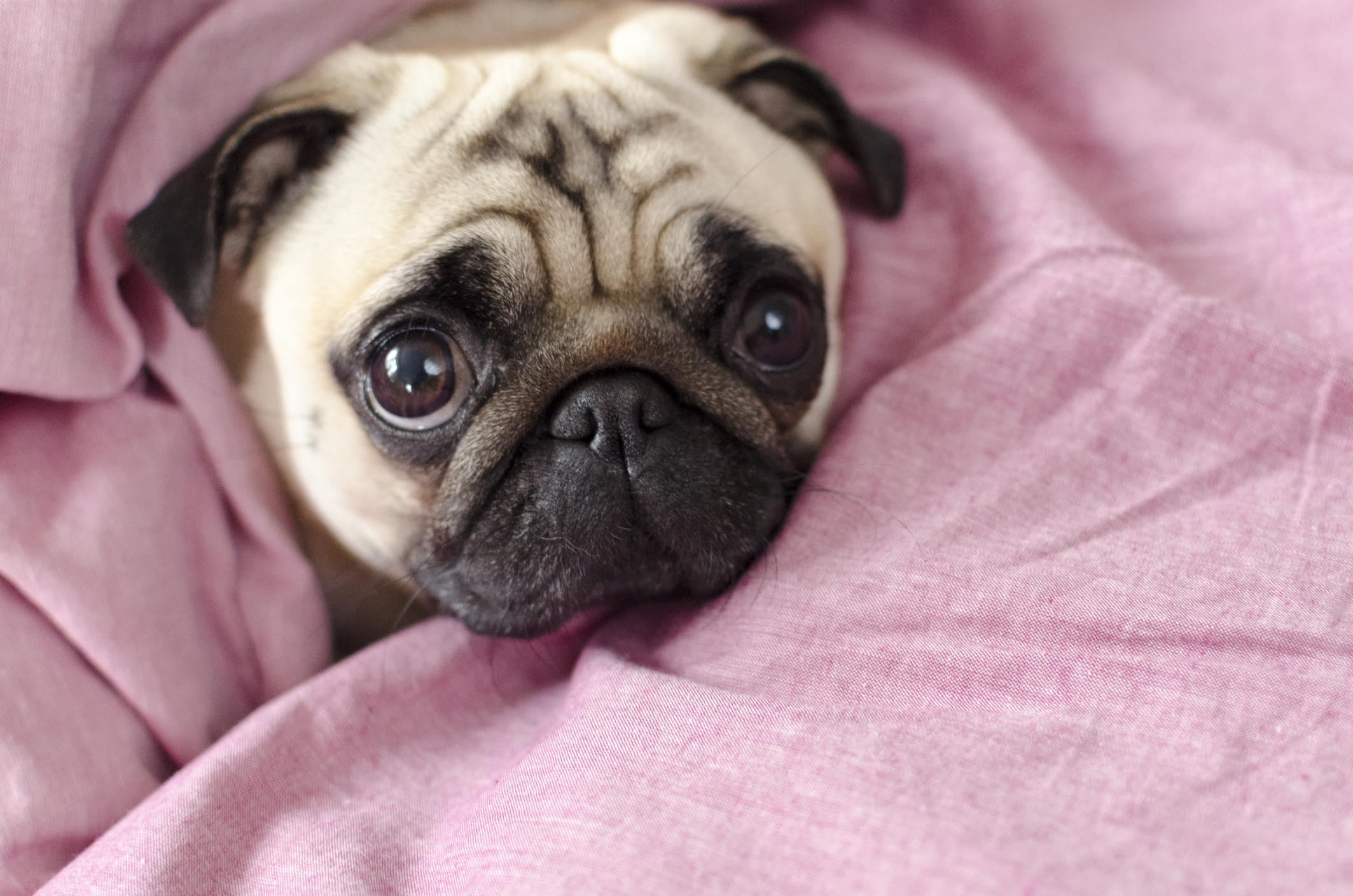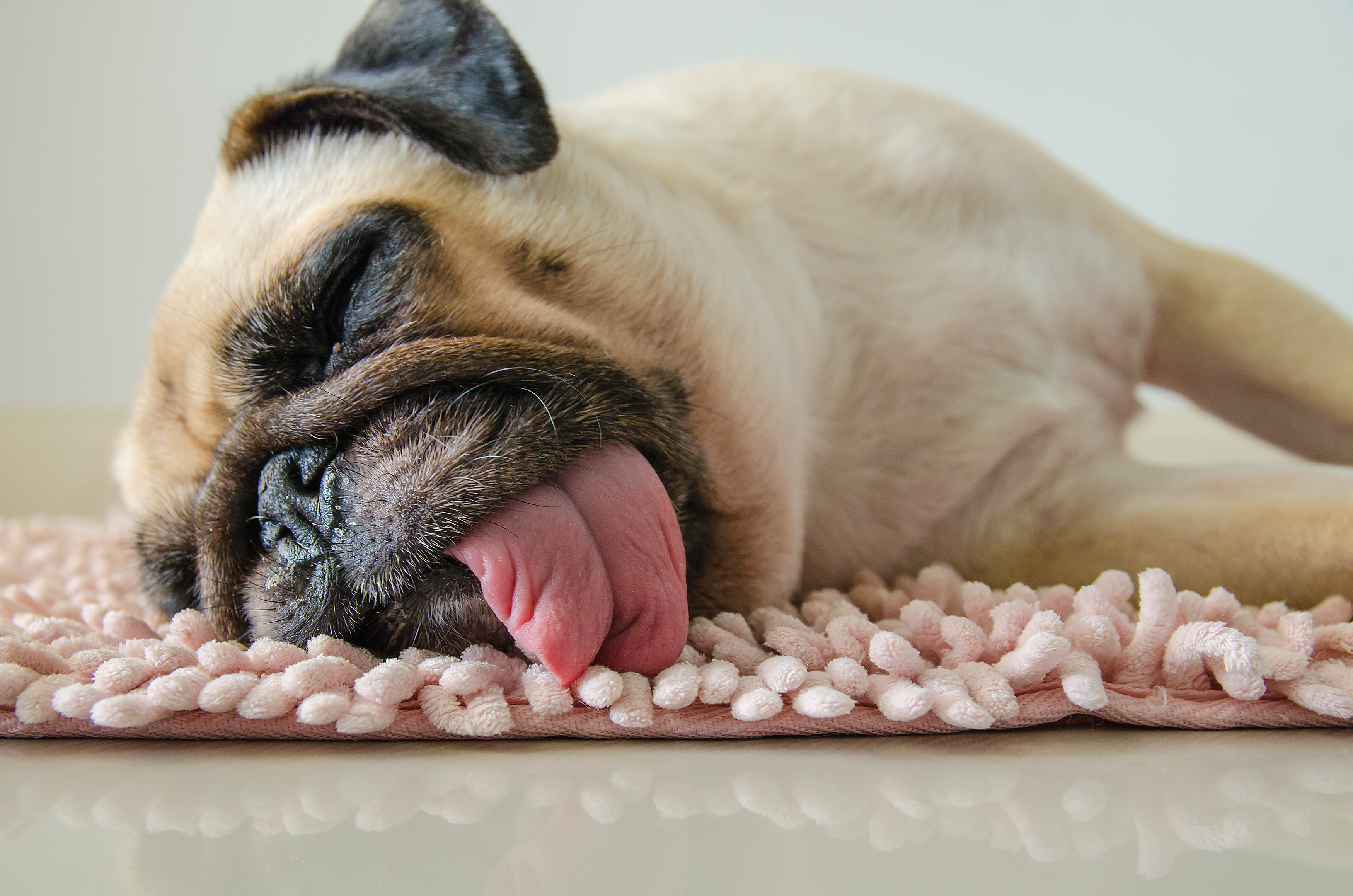20 things you need to know about Pugs
3rd January, 2020

They’re instantly recognisable and a firm favourite in households all around the UK. What are we talking about? The Pug, of course! It’s easy to fall in love with a Pug’s big, brown eyes and adorably wrinkled face. Before you commit to the breed, however, you must first ensure you’re fully informed – how else will you know whether you’ll be a good fit?
Sweet and affectionate, Pugs remain one of the UK’s most popular breeds. Sadly, the breed often falls prey to unscrupulous breeders, focusing on cosmetic results at the expense of these poor creatures’ health and happiness.
There’s no reason you can’t welcome a Pug into your home, but it’s essential to act responsibly and secure reliable dog insurance cover, protecting your Pug in case they fall ill or have an accident.
Purely Pets believes that all canines deserve loving homes. We can find you tailored to your pooch and your budget, giving you peace of mind that your pet will receive the care they need.
Now, let’s take a look at our list of 20 Pug-related facts – some might surprise you!
- If you care for them well and feed them a top-notch diet, Pugs can live long, happy lives spanning 12-15 years.
- Pugs are known to be clownish and lovable furry friends. They adore their humans and need to be with them as much as possible. Bred for companionship, they’re content to live a largely sedentary lifestyle, curled up on the sofa with you – they love kids, too.
- Pugs are vulnerable to a variety of hereditary health problems. They are a brachycephalic breed – flat-faced – which means they often have severe difficulty breathing, catch colds easily and may suffer from eye and skin issues.

If you plan on purchasing a Pug, make sure you have top-notch dog insurance, so you can provide your four-legged friend with the best possible quality of life and prompt treatment, should they need it.
As a means of combating the demand for Pugs with exaggerated facial features, the PDSA recommends opting for a breed with attributes that make for better physical health, choosing other pedigree pups, mongrels or crossbreeds.
- If you have your heart set on a Pug but don’t want to deal with unscrupulous breeders, consider one of the following Pug crossbreeds:
- Daug – Dachshund and Pug
- Porgi – Corgi and Pug
- Pompug – Pug and Pomeranian
- Jug – Pug and Jack Russell Terrier
- Pugs are loud little furballs, snorting, snoring, wheezing and farting often.
- The average pug weighs between 6.3-8.1kg, standing at heights between 25.4-35.56cm, regardless of gender.
- A Pug has two curls in their tail, a tiny black muzzle and a short, glossy coat, with a clear black line running the length of their back and well-defined markings. Coats can come in the following colours:
- Fawn
- Apricot
- Black
- Silver
- Don’t let that fine coat fool you – fawn-hued Pugs are double-coated furballs, which means they shed considerably. Not only do Pugs adore the one-to-one element grooming involves, they need it! Their coats must be brushed daily, in order to remain in tip-top condition.

- A group of Pugs is called a ‘grumble’.
- Pugs must be completely dried off after bathing – this is particularly important when it comes to those adorable facial wrinkles, which provide nice, cosy homes for nasty infections to take root. Between monthly baths, use baby wipes or cotton pads to clean the folds.
- You’ll also need to trim your Pug’s nails regularly, and clean their little ears every couple of weeks.
- Pugs are one of most ancient canine breeds in the world, originating from China and dating back to 700 BC.
- The Emperors of China deemed Pugs so precious, the canines had their own servants and were housed in special doggy sections of royal palaces, dining on the finest foods – not a bad life!
- After China started trading with Europe in the late 1500s, it is believed the first Pugs to reach Europe were smuggled over by visiting Dutch traders. The tiny creatures became an instant hit with the upper-class society.
- Over in Holland, Dutch royalty made the Pug the official canine of the House of Orange. This was due to the belief that a Pug had saved William of Orange’s life, raising the alarm when invading Spaniards approached in 1572.
- William and his wife Mary II of England were such Pug lovers, they introduced the breed to England, bringing their own pet Pugs with them when they travelled over in 1688, upon Mary’s taking of the throne.
- In France, Marie Antoinette fell in love with the Pug, too, naming her own furball Mops. Napoleon Bonaparte’s wife Josephine was also a Pug lover: her pooch Fortune kept her company during her imprisonment at Les Carmes prison.
- After a dip in popularity, Queen Victoria triggered a new era of Pug love, owning and breeding several of her own. The monarch banned the cropping of Pugs’ ears during her reign, as she felt this was a cruel practice.
- Pugs are huge on social media. The canine influencer is Doug the Pug – the self-proclaimed King of Pop Culture – with a following of 3.8 million on Instagram. See what all the fuss is about at itsdougthepug.
- Hollywood embraced the Pug, too, with one of the tiny pooches taking to the big screen in the movie Men in Black, playing the role of ‘Frank the Alien’.
- While it’s uncertain how many Pugs are owned UK-wide, Pets4Homes cites the pooch as the third most popular pick out of 244 breeds, so it’s safe to say that Pug popularity endures.
Protecting your pooch
No matter what breed your dog is, every canine deserves first-rate care, if and when medical issues arise.
Purely Pets understands the many ways our favourite furballs impact our lives. They keep us company, provide endless fun and affection, reduce stress and enrich every moment.
We want your pooch to enjoy a long, happy life, which is why we offer dependable dog insurance tailored to each owner’s needs and budget.
Don’t wait – get a quote today.
Helpful Pages
Recent Posts
Pet Insurance Quote
- 98% claims paid *
- Claims paid directly to vets
- 24/7 vet video consultations
- Interest free monthly payments




